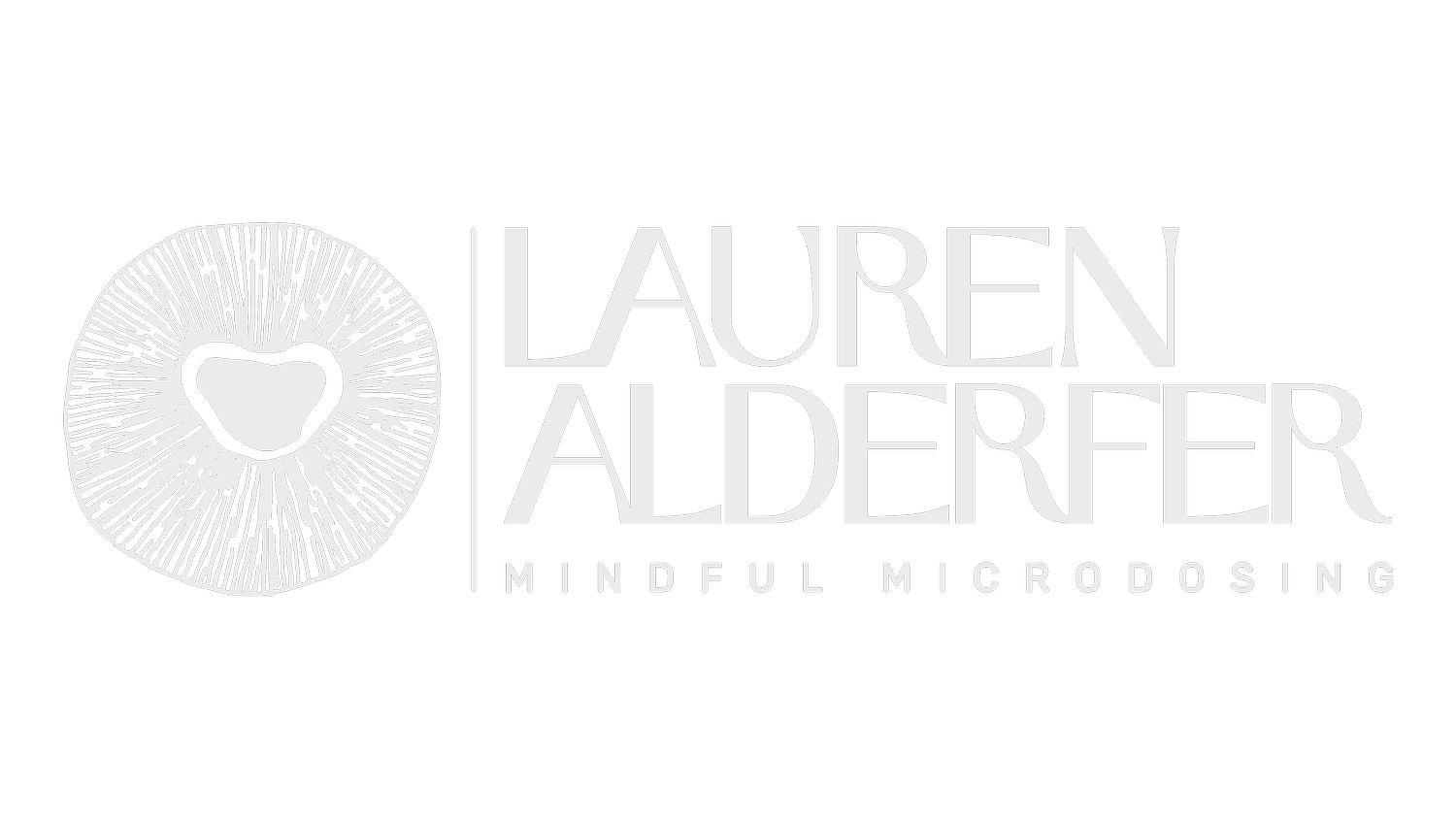Pharmaceuticals VS Microdosing - A Mindful Approach to Dementia & Psychedelics
I am very much in favor of new pharmaceuticals that can help or potentially reverse Alzheimer’s, but I am very much against pushing back from the fact we will die—or living in fear rather than accepting that in the later years, there may be disease and suffering. By understanding that, there can be even more freedom to live from a heart of abundance; that each day is precious and to be lived to its fullest.
There continues to be promising research in the area of dementia. For instance, a recent experiment reversed Alzheimer’s in mice. Unfortunately, the currently available pharmaceuticals do not do the same in people. Some medications are aimed at temporarily improving cognitive impairment. It was explained to us that the medication may reverse the disease by about six months, but then the trajectory of the disease continues as normal. Then the risk is that when or if the person goes off the medication, the disease reverts to where it would have been without the medicine. In other words, the disease advances to where it may have been, the symptoms getting worse almost immediately.
When this option was explained to Henry, then in a mild stage of Alzheimer’s, he wasn’t interested in trying one of the prescription options. As I sat in the doctor’s office listening to the above explanation of how the medication worked, I thought that microdosing was having much more benefit. After all, Henry was not showing signs of anxiety or depression; his ability to focus and his ability to have greater endurance than before he was microdosing were notable. To gain six months and then follow a similar decline didn’t really make sense to me.
Henry’s wonderful primary care doctor in the US was very much aware that Henry eschewed pharmaceuticals, but she was also interested to see if the medicine might help. It took several visits, actually over a year, before Henry decided to at least try one of the medications she recommended. He was assured that if it didn’t suit him, there was nothing to lose.
The first medication Henry tried was donepezil. Henry experienced extreme dizziness for four weeks; worse still, he seemed out of sorts and actually said he didn’t feel like himself. After one month of giving it a valid try, Henry stopped taking donepezil.
After that trial, Henry continued on with microdosing. Microdosing seemed to be helping with cognition and overall day-to-day experience. From what the doctor explained, it seems to me that microdosing is proving far better than donepezil, at least for Henry. Not only are there cognitive benefits, but Henry’s sleep is very sound. There are no negative symptoms like there were with the medication.
Henry had learned that a big breakthrough had been announced with a new medication on the market for Alzheimer’s. Indeed, on Jan. 26, 2025, the FDA approved once-every-four-weeks maintenance dosing of lecanemab for early Alzheimer's disease. The doctor let Henry know that she felt he was not a good candidate for the infusions. However, she recommended another medication he was willing to try: memantine. Memantine is approved to treat moderate-to-severe Alzheimer's disease by the FDA and is also sometimes used in combination with other medications, such as donepezil, for the same indication.
I was surprised that Henry was open to consider trying another medication. He gave a very enthusiastic, “Yes, let’s give this another shot,” reply to his doctor. So, when the prescription was ready, I added the pill to Henry’s daily regime.
I didn’t feel the need to mention to Henry that he had started taking the memantine. If Henry has a strong like or dislike to something, it will have a strong placebo effect. I, of course, looked out for any negative symptoms such as dizziness, but luckily, there didn’t seem to be any. But I also didn’t see any difference or improvement after more than a month.
Then one afternoon, as Henry was getting out of his chair, he mentioned he felt dizzy. He wondered if he had been taking the medicine. When I mentioned that, yes, for over a month, he took in the information. Then, over the next week or so, he complained of dizziness. He wanted to discontinue the medication. Once he did, Henry said the dizziness was immediately gone.
This brings me back to the fundamental question of how we view death, dying, and what’s ahead, even after a diagnosis of Alzheimer’s. Henry expresses feeling safe—emotionally, physically, and very importantly, spiritually. What more needs to be done?
Well-intentioned people bombard us with many potentially helpful things—supplements, magnetic therapy, light patches, and more. I do not say these aren’t helpful, but what I do want to ensure and maintain is a lifestyle that is conducive to the safety Henry feels.
In last week’s post, I included the six bardos, intermediate states of being according to Tibetan Buddhism. One of the states is The Bardo of Dying—the gradual process of death and leaving the physical body. GRADUAL. PROCESS. DYING. As I continue to contemplate this concept, I am sensing that the bardo of dying when someone has Alzheimer’s is a process that is already at play. GRADUAL. PROCESS. DYING. I sense that Henry’s spirit, or stream of consciousness from a more Tibetan angle, drifts into something beyond. At least at times. GRADUAL. PROCESS. DYING.
It is nothing to fear. Rather, it is to hold tenderly. My duty is to protect this space for Henry. If I were at the bedside of someone at hospice whose death was imminent, I would do the same. Holding space—a peaceful space, connecting to something greater that can be palpable at times—is my goal. It is no different with Henry.
Moreover, it is I that feels the grace from whatever plane of existence Henry dips into.
- Lauren Alderfer, PhD.

